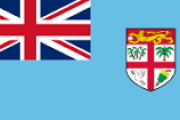Mr. President;
Distinguished Leaders;
Excellencies;
Bula Vinaka.
I have the distinct privilege today to speak on behalf of a group of 12 Pacific Small Island Developing States: Fiji, the Federated States of Micronesia, Nauru, Kiribati, Palau, Papua New Guinea, Marshall Islands, Samoa, Solomon Islands, Tonga, Tuvalu, and Vanuatu.
With a united Pacific voice, the people of these island nations demand urgent action to protect the vast, unique flora and fauna that graces our forests and reefs.
The Pacific Ocean is the largest body of water on the planet and hosts some of the richest marine ecosystems. Almost ninety-eight per cent of the Pacific region is ocean; and as a result, the Ocean and its extensive resources are central to the lives and future prosperity of Pacific Island peoples.
And in the Pacific, we are on the front lines of an existential reckoning the likes of which humanity has never seen: The world is in a state of planetary emergency. By land, air, and sea, we are losing nature at an unprecedented rate.
The current rate of extinction is tens to hundreds of times higher than the average over the past 10 million years — and it is only accelerating. Bio-diversity loss has critical implications for humanity, from the collapse of food and health systems to the disruption of entire supply chains.
So even as the world is grappling with economic recessions caused by COVID-19, Leaders around the globe need to recognise this: An ecological recession could have even worse –– and permanent –– consequences.
Our Small Island economies are among the first to feel this fall-out. We are structurally dependent on the natural ecosystems that support both tourism and fisheries, making us all the more susceptible to the devastating impact that bio-diversity loss can have on these and other industries.
So as the world recovers from the impacts of this pandemic, we must ensure to build back better and ‘bluer’ –– we must invest in, and commit to, a sustainable and re-generative blue economy.
We cannot go back to status quo –– once in which dying reefs, depleting fish stocks, and warming seas are the norm. Doing so would trigger the collapse of entire eco-systems, along with the societies and economies that depend on their vitality.
Mr President,
Pacific Leaders have called for a 2050 Strategy of the Blue Pacific Continent dedicated to “drivers of change” –– forces such as technology, labour mobility, and transportation, all of which will no doubt shape the next 30 years of our region’s blue development.
Against this backdrop, as Pacific SIDS, we are working on reducing our emissions, building resilience, and fighting to protect our oceans and its resources. This is all part of our Pacific vision –– one that is anchored by bold, blue commitments to hold ourselves accountable and lead the world by example. of 7 As part of this Pacific vision:
- Fiji and others have taken the lead to ban single use plastic bags, given the enormous threat of increasing plastic pollution to the health of our ocean resources and our people. Fiji plans to ban Styrofoam by the start of next year.
- By 2050, every economy in our region must achieve net-zero global emissions –– zero excuses.
- By 2050, we must have built a resilient Pacific –– one that has been smartly adapted to the worsening climate impacts we know are headed our way.
- By 2050, our region’s oceans must be secured by powerful protections that preserve their bounty and beauty for all time.
We’ve already established some of the world’s largest and deepest “no-take zone” marine protected areas in the world, aimed directly at restoring the health and wealth of the global marine bio-diversity.
Mr President,
We are calling on all Leaders of the world to follow the Pacific lead, and be inspired by the Pacific vision. Be leaders –– blue leaders. Call for urgent action to develop a new, legally binding global agreement that holistically addresses marine litter and plastics. By doing so, we can proudly say that we helped cultivate a more harmonious existence with nature, leaving the world better than we found it. Vinaka vakalevu.
Thank you.


